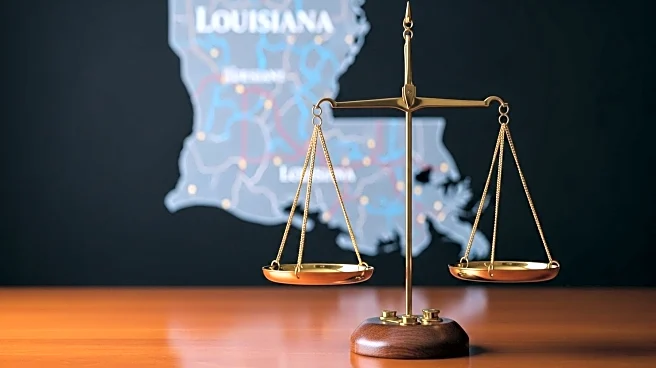What is the story about?
What's Happening?
The Supreme Court is set to hear Callais v. Landry, a pivotal case concerning the use of race in drawing voting maps in Louisiana. The case challenges the state's 2024 redistricting plan, known as Senate Bill 8, which created a second majority-Black district. The plaintiffs, including Albert 'Skip' Caissie Jr., argue that the plan constitutes an unconstitutional racial gerrymander, violating the Equal Protection Clause of the Fourteenth Amendment. Caissie, a retired grocery-sales worker, was unaware of his involvement in the case until contacted by reporters. The case has already been reviewed by a three-judge panel in the U.S. District Court for the Western District of Louisiana, which found the districting plan unconstitutional.
Why It's Important?
This case is significant as it could redefine the balance between the Voting Rights Act and the Constitution's promise of equal protection. The outcome will influence how states can consider race when drawing political maps, potentially affecting voting power and congressional representation across the United States. The decision will have implications for the creation of majority-minority districts and could set a precedent for future redistricting efforts. The case highlights the tension between ensuring fair representation for minority groups and adhering to constitutional principles.
What's Next?
The Supreme Court's decision, expected later this term, will determine whether Louisiana must redraw its congressional map. The ruling could establish a national precedent on the limits of race-conscious redistricting, impacting voting rights and representation beyond Louisiana. Stakeholders, including civil rights organizations and state governments, are closely watching the case for its potential to reshape the legal landscape of voting rights in the U.S.
Beyond the Headlines
The involvement of plaintiffs like Caissie, who were unaware of their participation, underscores how major constitutional cases are often driven by advocacy groups rather than individuals directly affected. This raises questions about the role of ordinary citizens in legal battles that may redefine national policies. The case also reflects ongoing debates about race and representation in American democracy, highlighting the complexities of balancing legal principles with social justice goals.
















